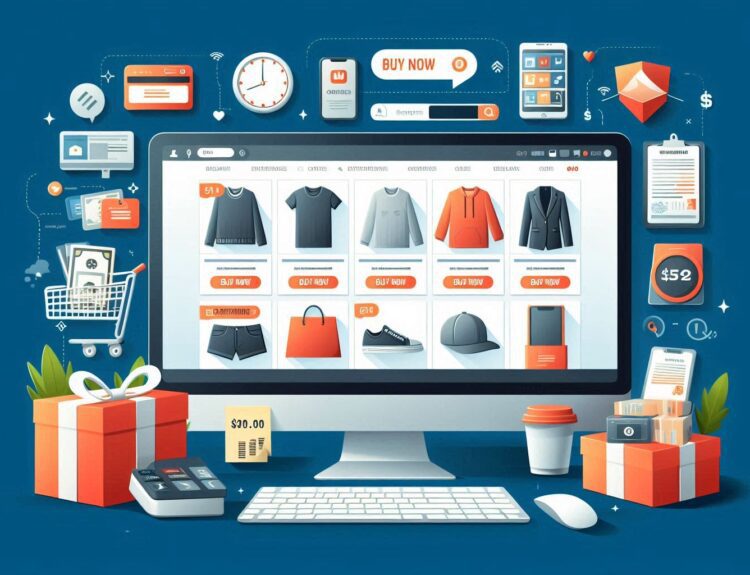Shopify’s origins date back to 2006 when it was founded by Tobias Lütke, Daniel Weinand, and Scott Lake. What began as a modest online store for snowboarding equipment quickly transformed into a robust platform for building online stores. Today, Shopify stands as one of the most recognized and trusted names in e-commerce.
Shopify is packed with features, making it a top choice for online businesses of all sizes. From customizable templates to integrated payment gateways, the platform offers a level of flexibility that’s hard to match. Whether you’re selling physical products, digital goods, or services, Shopify has you covered.
When comparing Shopify to competitors like WooCommerce or BigCommerce, its user-friendly interface and extensive range of third-party apps give it a distinct edge. The platform is designed for scalability, allowing you to grow your business without stress, whether you’re just starting out or already managing a thriving online store.
User Experience: Navigating the Shopify Interface
Navigating Shopify is intuitive, even for those who aren’t tech-savvy. The dashboard is clean and easy to use, making store management a breeze. For beginners, Shopify offers a step-by-step setup wizard that guides you through the essentials, from adding products to setting up payment options.
For those who like to customize, Shopify offers a wide variety of templates, many of which are free. Each template can be personalized with drag-and-drop features, allowing you to make changes without needing to dive into code.
Where Shopify really shines is in its app store. Similar to the App Store on your phone, Shopify’s app marketplace features thousands of apps that let you add functionalities like email marketing, inventory management, and customer reviews with just a few clicks.
Integration is seamless too. Shopify works well with a host of tools you might already use, such as MailChimp, QuickBooks, and social media platforms. This makes managing your store easier, allowing you to focus more on your business and less on linking everything together.
Performance and Reliability: Shopify’s Technical Backbone
When it comes to performance and reliability, Shopify excels. The platform handles hosting for you, so there’s no need to worry about servers, downtime, or updates. Shopify’s infrastructure is designed to handle traffic spikes, ensuring that your site remains stable even during peak times.

Speed is critical, and Shopify doesn’t disappoint. The platform’s super-fast servers ensure quick page load times, which not only enhances the user experience but also positively impacts your search engine ranking. It’s a win-win.
Scalability is built into Shopify’s DNA. Whether you’re a small startup or a well-established enterprise, Shopify can grow with you. Adding new features and products is simple, with no risk of slowing down your site or encountering technical issues.
Cost and Value Analysis: Is Shopify Worth It?
Understanding Shopify’s pricing plans is key before you commit. The platform offers several tiers, starting with a basic plan that’s perfect for beginners, and scaling up to advanced plans for larger businesses with more complex needs. Each plan comes with a different set of features, allowing you to choose the one that best fits your business model.
One aspect to consider is transaction fees. Shopify charges a fee per transaction unless you use Shopify Payments, its integrated payment gateway. Using Shopify Payments can save you extra charges and streamline your financial operations.
When comparing Shopify to other e-commerce platforms, it offers excellent value for money. The combination of features, ease of use, and top-notch customer support makes it worth the investment. While it might not be the cheapest option, the time and headaches it saves are invaluable in the long run.

Ready to turn your business dreams into reality? Click here to start building your online store with Shopify—your all-in-one platform for e-commerce success!
Discover More
Be sure to explore our other articles in the Launch Your Empire category for more valuable insights!
Boost Your Business & Support Us!
When you click our links, you’re not just growing your business—you’re also supporting us at no extra cost!
















🚀 Let’s Spark a Conversation! 🚀
Your voice matters! Drop a comment below and join the conversation. Whether you have questions, thoughts, or personal experiences to share, we want to hear from you. Your input can ignite new ideas and help others in our community. Let’s make this space vibrant and engaging—don’t hold back! 🌟💬
Great post, Maksim! I found your analysis of Shopify’s features and scalability really insightful. It’s impressive how Shopify provides such a wide range of tools and integrations, making it a strong contender for businesses at any stage. The examples of successful brands like Beardbrand and Gymshark are particularly motivating.
I’m wondering, how would you recommend new users prioritize which apps to install first from Shopify’s app store to maximize their store’s initial performance and growth?
– Scott
Hey Scott, I’m glad you enjoyed the post! 😊 For new Shopify users, I’d recommend starting with apps that cover the essentials: SEO optimization, email marketing, and social proof tools like reviews or pop-ups. Apps like SEO Booster or Klaviyo can help boost visibility and build relationships with customers right from the start. As your store grows, you can then dive into more niche tools, but getting these basics in place will give you a solid foundation for success! Thanks for the comment!!